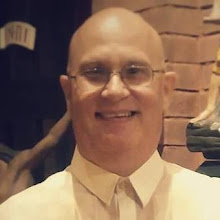Carlos Chavez was one of the most influential Mexican composers for a generation. Born in 1899, his six symphonies, colorful ballets and stints as director and or founder of many Mexican musical institutions made an indelible impression in his native land and abroad. But as the most interesting and intelligent program notes by Andrew Granade point out, even those who influence and become masters feel the need to pay homage to their teachers and mentors. Thus Chavez took two works by Debussy and two by Spanish master Manuel de Falla and transformed them into his Trio for Flute, Viola and Harp.
Debussy's popular "Snow is Dancing" comprises the first movement of the trio. The expansion from the piano only original turns the gentle snowflakes into a darker, more menacing and wind whipped snow shower. More than just sound and color, with Chavez's expanded palate the work took on a more profound tone; more of a tone poem than piano prelude. The haunting bell like sounds in the piece were inspired by Indonesian gamelan music and in Chavez's arrangement, the harp is most effective in emulating the soft, snow shrouded bells.
In the second movement, a transformation of "Asturiana" a song for voice and piano from the Siete canciones populaires espanolas by de Falla, the harp takes on not only the piano part but strums in imitation of a guitar. The viola and flute, in their lowest breathiest registers sing the melismatic and haunting melody so effectively and colorfully one does not even miss the voice singing of inconsolable loss that makes even the pine tree weep. The short agitated "Polo" again from the Siete canciones populaires espanolas, became a dramatic, rough and edgy scherzo in between the more lyrical "Asturiana" and the final "Golliwog's Cakewalk" movements.
The Cakewalk, familiar to many, also expands from a short piano prelude to a compact almost symphonic statement. Assigning the viola the Wagner quote from Tristan and Isolde gives the out of nowhere quotation even more pungency and absurdity. The harp and flute giggle haughtily at the off-the-wall, quotation. The ensemble had a nice, jazzy feel for the work and certainly communicated the fun they had in presenting Chavez's loving tribute to his mentors.
I never cease to be amazed at the music of Bohuslav Martinů. From many influences, Czech songs, French impressionism, jazz, music of the classical and baroque eras, Martinů nonetheless possessed a most distinctive voice. The characteristics of infectious rhythm, bright and often brittle sonority combine with jaunty folk like melodies, jazzy riffs and an unfailing ear for orchestration gracing every work of his I have ever heard, so what is not to love? Besides, the music looks like is as much fun to play as it is to hear.
Thus a fitting ending for the evening was one of his last works, the Musique de Chambre #1 from 1959, imaginatively scored for violin, viola, cello, clarinet, harp and piano. Out of the depths of an ambiguous introduction come the Gypsy/Romani melodies and figures over harp and piano ostinati. You would be correct in even tasting a bit of the blues here and here, as Martinů turns this brief opening movement into a nostalgic travelogue.
The slow second movement could have been from the pen of Ravel or Debussy with its misty meditative mood and chiaroscuro harmonies. Prominent Harp and viola lent a melancholy atmosphere to this most beguiling movement. The finale would have you to believe it is more of the same with its contemplative opening, but the ghosts are dispelled and the motoric rhythms and dance return, propelling the work to a dancing conclusion.
Please, Kansas City music groups, program more Martinů. The KC Symphony did the 4th Symphony, but there are 5 others. The incredible "The Frescoes of Piero della Francesca" would be nice too. The Kansas City Chamber Orchestra would be a natural to do some of his chamber works and concerti and Summerfest programmers should note the rousing applause given this evening's performance.
Thanks so much to St Mary's Episcopal Church for a lovely venue and a bountiful reception and to Rev. Lauren Lyon for her special kindness this evening!



No comments:
Post a Comment